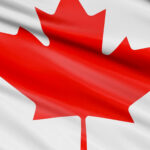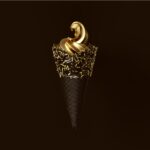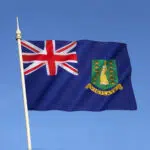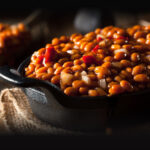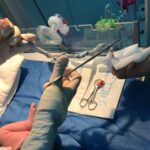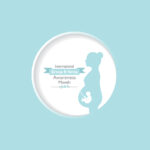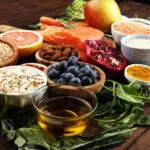National Baby-Led Weaning Day is on July 1 and is dedicated to babies and their meals. In comparison to the conventional spoon-feeding method, Baby-led weaning trains babies to feed themselves appropriate foodstuffs right from their first bites. It advocates the work of Dr. Gill Rapley, who is the founder of this day and holds a rich experience in the areas of infant feeding and child development. She recommends parents wait until their child gets ready to consume solid meals. This method fine-tunes motor development and helps babies learn self-regulation in eating.
History of National Baby-Led Weaning Day
It is suggested that newborns should not be made to start baby-led weaning till the age of six months. Since July 1 is exactly halfway through the year, it serves as a good reminder to parents that it is unhealthy for their newborns to consume anything except mother’s milk and/or baby formula during the first six months. After that period, babies should be given a variety of foods.
The day of July is designated as B.L.W. Day to celebrate the efforts of Dr. Rapley, Ph.D., who established this day to spread awareness about the benefits and necessity of delaying the transition to solid meals for infants. She has valuable experience in the domains of midwifery, public health nursing, and lactation counseling.
Solid meals can be introduced when kids are six months old and are ready to eat. However, the starting point matters: too early is dangerous, whereas doing it too late leads to selective eating and weight issues. Highlighting the indicators of readiness to be fed and introducing solid meals safely around the six-month mark, helps to educate parents and caregivers on this relevant subject. Many parents feel pressured to start B.L.W. or solid meals too early, but waiting until their kid is ready is critical. Nutritionally, there is no need to start before six months are over because the mother’s milk and/or formula are sufficient. Kids are not developmentally ready for solid meals until they reach that age, so starting early leads to the risk of choking and other problems.
National Baby-Led Weaning Day timeline
Baby food makes its debut in 1920, when Harold Clapp of Rochester, New York, prepares a healthy vegetable soup for his sick infant.
The Fremont Canning Company sells more than two million cans of infant food by 1933.
Infant health specialist, Dr. Rapley, coins the phrase ‘baby-led’ weaning in 2005.
The American Academy of Pediatrics reaffirmed its advice that newborns be breastfed exclusively for the first six months.
National Baby-Led Weaning Day FAQs
When should you begin weaning your baby?
Experts, notably the American Academy of Pediatrics, agree that starting solid meals around the first six months is the optimal time. By that age, most newborns can sit and grasp items on their own.
How do you begin baby-led weaning?
Begin baby-led weaning with steamed and sliced food so the infant may easily chew and swallow the foods. Start with soft fruits and vegetables. After that, offer gently cooked but solid meals that can be eaten easily with bare gums.
How often should you do baby-led weaning?
Your kid should be eating solid food two to three times a day. After 12 months, give three meals with two snacks a day, and continue to offer the mother’s milk or formula feeds till the child is 12 to 15 months old.
National Baby-Led Weaning Day Activities
Celebrate development milestones
Babies are cute but messy. Instead of being concerned about the chaos they create, take it in a positive light that they are reaching important milestones.
Wait until your child is ready
Your baby should be able to sit unsupported in a high chair, have strong neck muscles, and be able to transport food to the back of his/her mouth using jaw motions. This indicates the child is ready for B.L.W.
Educate yourself
If your baby is ready to start solids, now is a good time for you to learn about baby-led weaning. Take some time out on this day to read up on it.
5 Facts About Baby-Led Weaning
The classic approach
In the ‘classic’ approach, parents spoon-feed pureed meals to their newborns.
Babies develop coordination
Babies who learn B.L.W. develop better hand-eye coordination early, which is beneficial.
Babies become less picky
By the age of 18 to 24 months, babies who follow B.L.W. are less likely to be fussy eaters, which provides some relief to their parents.
B.L.W. vs. spoon-feeding
Parents who go for the B.L.W. method are more inclined to provide foods that don’t pose choking concerns for newborns.
More convenient
It is more convenient for parents since they do not have to prepare separate food for the newborn.
Why We Love National Baby-Led Weaning Day
It makes babies smart
There have been unproven claims that this practice may increase a baby's dexterity and confidence. Research has linked it to their capacity to recognize when they are full and to be less fussy with their meals.
It helps babies to recognize various cuisines
Baby-led weaning teaches your child that various meals have varying forms and textures, as opposed to pureed food. Pureed food has diverse flavors but the same texture.
It may encourage healthy eating habits
B.L.W. enables your baby to choose the type and quantity of food. This transforms them from passive recipients to active participants in the feeding process. As a result, it is frequently claimed that B.L.W. promotes healthier eating habits later in life.
National Baby-Led Weaning Day dates
| Year | Date | Day |
|---|---|---|
| 2025 | July 1 | Tuesday |
| 2026 | July 1 | Wednesday |
| 2027 | July 1 | Thursday |
| 2028 | July 1 | Saturday |
| 2029 | July 1 | Sunday |







